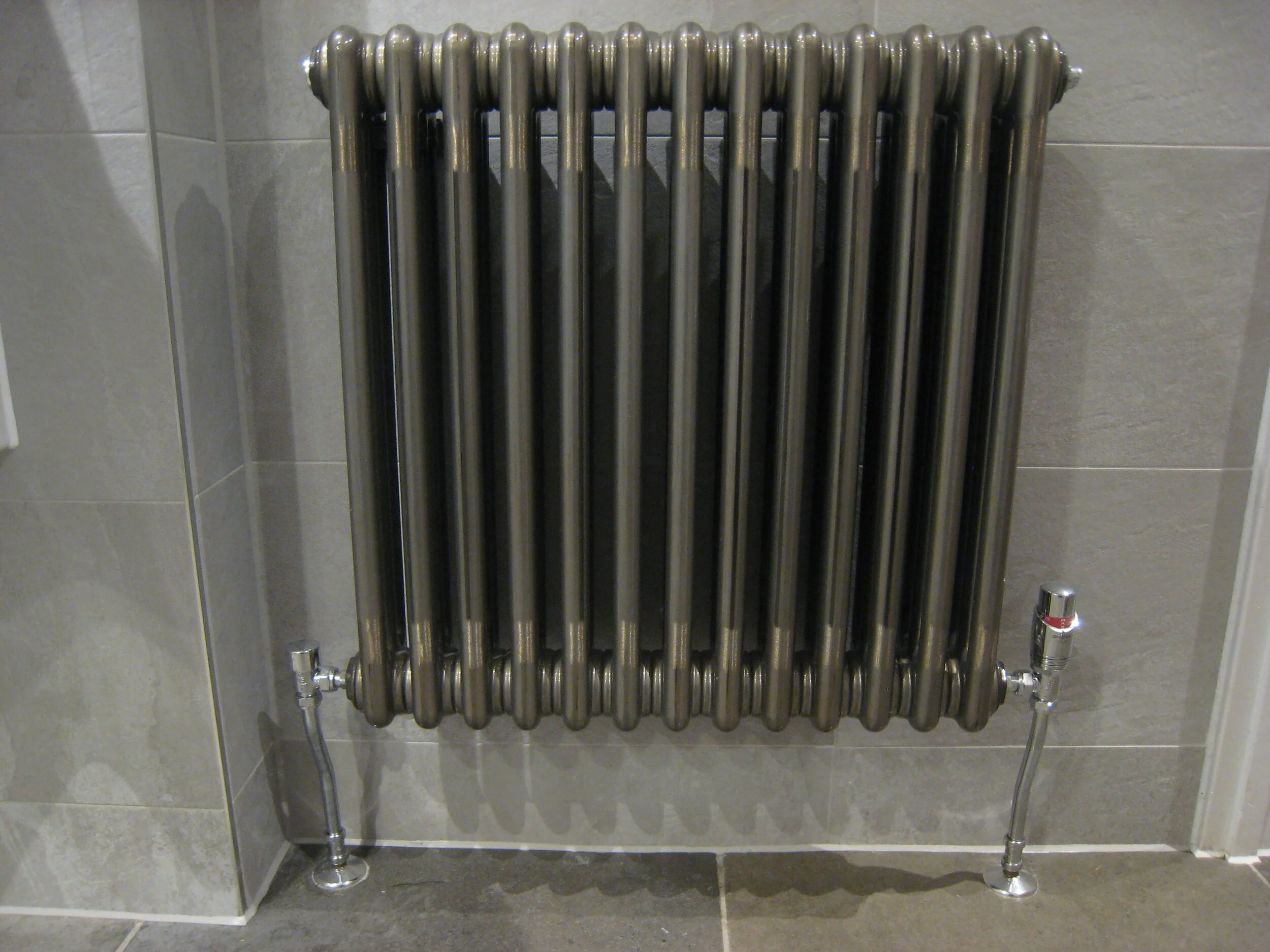Without the correct maintenance, central heating systems will deteriorate.
Does your heating system present any of the following symptoms?
Radiators slow to warm up;
Radiators are cold or have cold areas;
No water escapes when bleeding a radiator;
Discoloured water escapes when bleeding radiators;
Small leaks in radiators;
Under-floor heating failure (wet systems);
Noisy boiler and/or noisy pipes;
Fluctuating hot water temperature;
Boiler pressure dropping;
Dirty black or brown water in your heating system - the largest cause of boiler breakdown;
Slime in an expansion tank;
If yes, then book a free diagnostic visit.
On a diagnostic visit an engineer will inspect your heating system, take samples to establish the water quality, and measure surface temperatures throughout your heating system.
Powerflushing may be the solution you need, but this is not always the case. Our experienced engineers will advise you on the best solution.
What might cause these symptoms in a heating system?
Hard water can be the cause of limescale deposits which, in turn, can choke a heating system.
Soft water can cause internal corrosion and thick magnetite sludge.
These effects are analogous to the damage done to the bodies of those who suffer debilitating illnesses caused by the accumulation of cholesterol, which restricts blood flow in their arteries.
Another possible cause of corrosion is residual debris and soldering flux which, over time, can result in pin holes and blockages.
Microbiological growth can result in thick slime which will also congest a heating system.
Corrosion in heating systems causes a thick sludge (magnetite) which can settle in radiators, radiator valves, and pipes.
Limescale deposits can attach to pipe walls in heating systems, causing restrictions and potentially blockages to water flow.
Bacterial growth in heating systems can result in a glutinous slime.
Corrosion sludge, limescale, or bacterial slime can result in restricted hot water flow, blockages, cold or cooler radiators, poor efficiency, higher energy costs and reduced comfort in the home.
What is involved?
Several measured readings at various parts of your heating system are taken and recorded. A specialised machine and three-step chemical process are then put to work to thoroughly clean out your boiler, pipes and radiators, one by one. Tests are then carried out to ensure that the water in your central heating system is as clear as possible. After this process the clean water in the system is then dosed with any appropriate additives to reduce future corrosion, limescale, and micro-bacterial growth. The various readings are repeated, the differences between those at the outset and the cleaned system are noted, and a copy is given to you for future reference. An annual check is scheduled.
What happens if I don’t do it?
After a Powerflush your system should work much more efficiently and be less costly to run, therefore saving you money and making your home more comfortable. Your radiators will heat more evenly and quickly. Your home will heat up faster. It'll help prolong the life of your boiler, pump, and radiators. Wear and tear in the system is also reduced, cutting down the risk of breakdowns, cold radiators and noisy boilers. Alternatively, if left unattended an unprotected heating system would deteriorate over time, and is likely to suffer from the following complications.
Congested or blocked pipes, radiators and valves, due to the settling of limescale, corrosion sludge, or microbiological slime.
Cold spots in your radiators because of restrictions in hot water flow through it, due to thick sludge.
Pin hole leaks in pipes, radiators and valves, caused by internal corrosion.
Radiator noise, boiler noise, and / or noisy pipes, caused by the disturbed flow of water over roughened internal surfaces.
Radiators requiring frequent bleeding, which can be caused by the production of gases from the corrosion process.
Discoloured water, which is evidence that corrosion particles are being carried around a heating system.
Wasted energy, because your system has to work considerably harder when heating living space.
A clogged boiler and/or circulating pump causing breakdowns.
Fluctuating hot water temperature.
Microbiological slime slowing hot water circulation and causing blockages.
Frequently asked questions
HOW LONG WILL A POWERFLUSH TAKE?
Anything between half a day and two days. It depends on the size of your central heating system, the size of your home, how many radiators you have and how congested or dirty your current heating system is. An engineer will estimate how long it should take when carrying out a check beforehand.
IS A POWERFLUSH APPROPRIATE?
An engineer will check your heating system and advise if it's necessary or practical for a powerflush to be carried out. Some systems may need alternative arrangements, such as single pipe systems, Prismatic cylinders and some others. An engineer will check and advise on the likelihood of any potential risks associated with powerflushing.
HOW MUCH DOES IT COST?
This depends on the size and condition of your central heating system, which will need assessment, after which a fixed price will be submitted for consideration. Prices sit between £250 and £450 generally, but of course this can vary for several reasons.

